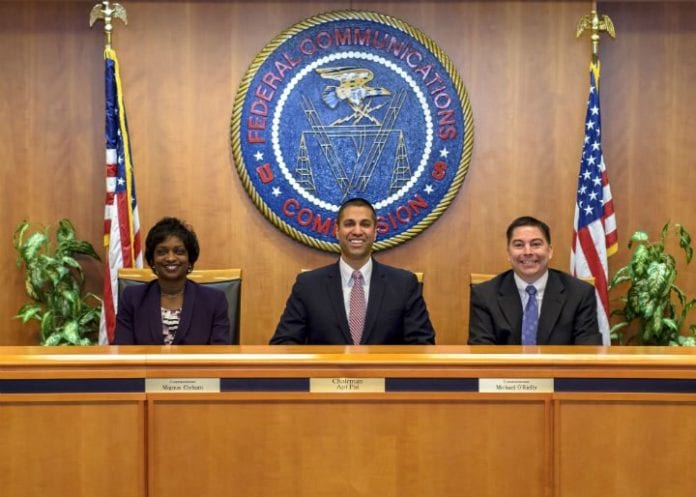Rule change should benefit AT&T, Verizon Wireless and Sprint
Five years after opening up the 800 MHz spectrum band for mobile broadband, the Federal Communications Commission says it has taken steps to enable operators to deliver service more efficiently while safeguarding public safety systems.
The FCC said that wireless carrier will be able to transmit the same amount of power across the spectrum band, whether they are deploying a narrow bandwidth technology or a wider band technology like LTE.
“The legacy rules limit wireless coverage for companies that want to deploy LTE,” FCC chairman Ajit Pai said in a statement. “This state of affairs changes today. The reforms we are adopting will help wireless companies better meet consumer demand for mobile connectivity and continue to innovate by facilitating the use of cellular spectrum to provide advanced services such as LTE.”
The Commission said it will treat cellular spectrum consistently with other similar commercial wireless spectrum bands by conforming rules related to power measurement, out of band emissions, field strength, and discontinuance of operations.
The FCC also said it will continue to ensure co-existence of cellular and neighboring public safety systems by retaining cellular-specific interference resolution rules and procedures and by engaging stakeholders via a public forum.
The final ruling related to the 800 MHz spectrum band was somewhat open-ended. The Commission said it will “eliminate unnecessary rules and burdens related to application filings, domestic and international coordination, and comparative renewal.”
Verizon Wireless, AT&T and Sprint all have rights to spectrum in the 850 MHz band. Sprint also uses spectrum in the 800 MHz band.

